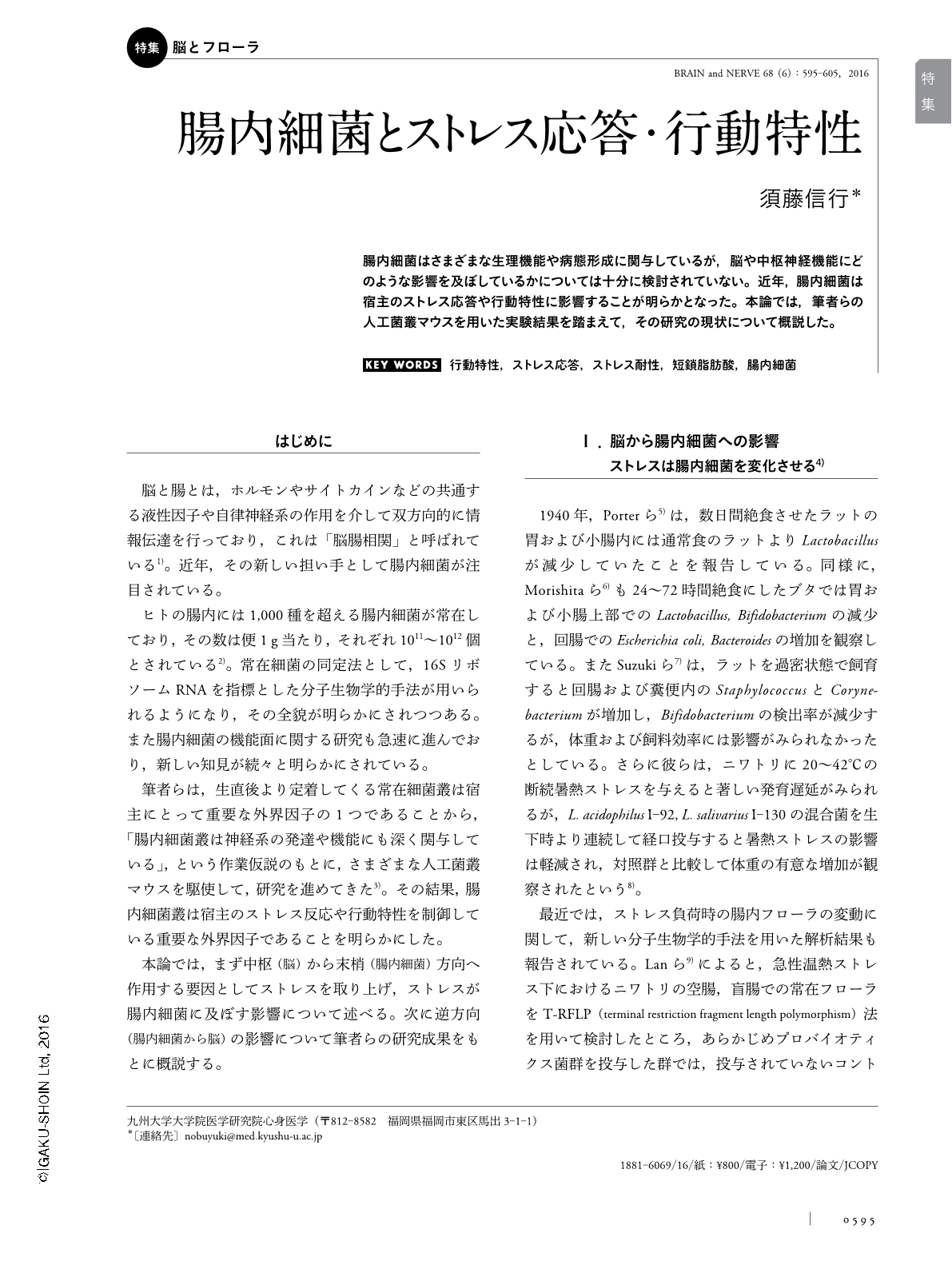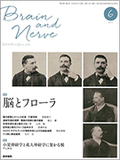Japanese
English
特集 脳とフローラ
腸内細菌とストレス応答・行動特性
Effects of Gut Microbiota on Stress Response and Behavioral Phenotype of the Host
須藤 信行
1
Nobuyuki Sudo
1
1九州大学大学院医学研究院心身医学
1Department of Psychosomatic Medicine, Graduate School of Medical Sciences, Kyushu University
キーワード:
行動特性
,
ストレス応答
,
ストレス耐性
,
短鎖脂肪酸
,
腸内細菌
,
behavior
,
gut microbiota
,
resilience
,
short chain fatty acids
,
stress response
Keyword:
行動特性
,
ストレス応答
,
ストレス耐性
,
短鎖脂肪酸
,
腸内細菌
,
behavior
,
gut microbiota
,
resilience
,
short chain fatty acids
,
stress response
pp.595-605
発行日 2016年6月1日
Published Date 2016/6/1
DOI https://doi.org/10.11477/mf.1416200447
- 有料閲覧
- Abstract 文献概要
- 1ページ目 Look Inside
- 参考文献 Reference
- サイト内被引用 Cited by
腸内細菌はさまざまな生理機能や病態形成に関与しているが,脳や中枢神経機能にどのような影響を及ぼしているかについては十分に検討されていない。近年,腸内細菌は宿主のストレス応答や行動特性に影響することが明らかとなった。本論では,筆者らの人工菌叢マウスを用いた実験結果を踏まえて,その研究の現状について概説した。
Abstract
Gut microbiota are involved in host patho-physiological functions; however, little is known about whether or not they can affect brain function. Several recent works including ours have shown that gut microbiota play a critical role in the determination of stress response and behavioral phenotype of the host. We here review recent advances in this area, i.e. the interaction between gut microbiota and the brain-gut axis, based on our series of experimental data.

Copyright © 2016, Igaku-Shoin Ltd. All rights reserved.


